When you want to start a flock of chickens or grow your existing flock, you have a number of options for how to go about purchasing chicks. Check out our article on where to buy chicks. One of the most cost-effective methods is to buy live chicks directly from a hatchery.
https://www.instagram.com/p/BSw6_9QBl80/?tagged=chickenhatchery
We have all heard horror stories about the brutal mistreatment of chicks in hatcheries. Since we care about animals and want to give our chickens the best start in life, whether we are farmers or hobbyists, it is natural to wonder about where to buy chicks as humanely as possible.
This is a little more complicated than it sounds. Let’s take a look at some common hatchery practices so you can be both better informed and more confident in your decisions.
What To Consider
None of this is to say that ordering chicks from a commercial hatchery is a bad thing or that there is no difference at all between them. When buying poultry in any quantity it makes the most financial sense, and at our farm, we do it all the time. Here are some things to consider when looking at hatcheries.
What Breed Are You Looking For?
One differentiating factor between hatcheries is the variety of birds sold. Most hatcheries will have a small variety of laying breeds and meat breeds, but if you are looking for something specific make sure the hatchery carries what you want.
https://www.instagram.com/p/BPS_qgrgkde/?tagged=chickenbreeds
More importantly, make sure that they will have that breed available when you place your order.
Some hatcheries specialize in exotic or rare breeds, and these birds can be extremely pricey!
How’s The Customer Service?
Another factor to consider is reliability and organization. Hatcheries are mostly family farms, run by maybe half a dozen people at most, and like every small business, the quality of their customer service varies widely. You want an organization that will keep track of your order, bill you correctly, and be responsive to questions.
Are There Disease Problems?
Finally, a hatchery will occasionally have disease problems. We once got a batch of 100 turkeys who developed bloody stool within a few days after they arrived.
We lost three-quarters of them in two weeks. A previous batch of turkeys from a different hatchery didn’t have any problems, so it was probably not a disease living on our farm but instead contracted at the hatchery. But at the time, we had no way to know for certain.
Biosecurity is a major concern for poultry farmers, so hatcheries make every effort to keep their facilities clean and their birds healthy, but problems do arise. The best way to prevent problems is to use a hatchery with a good reputation among locals. Ask farmers at the farmers market and staff at your local farm store who they trust.
What Is A Humane Hatchery?
In this article, Bell & Evans, a very large poultry company, discusses plans for a new kind of “humane” hatchery using new technology that costs them $30 million.
However, the only two animal welfare issues they identify as needing to be addressed are dark, stressful hatching conditions and shipping chicks without giving them food and water. Ironically, it turns out that neither of these is particularly bad for chicks.
https://www.instagram.com/p/BStUnwMB4wV/?tagged=humanehatchery
The article talks about partnering with a Danish technology company to provide “air and temperature controlled environment” and “in-ovo vaccinations.” As for climate control, that’s well and good, but every hatchery already provides heat and ventilation, otherwise, the chicks wouldn’t survive.
Since newly hatched chicks need an air temperature around 100F, all hatcheries are temperature controlled. Farmers are in the business of keeping their animals healthy.
The question of vaccinations is an interesting one, as vaccination is not a common practice with poultry, and instead, early diseases are controlled through the problematic use of prophylactic antibiotics. However, the question is moot to the backyard chicken farmer, since chicks raised with plenty of space and fresh air are much less susceptible to disease. Check out our article on chicken diseases.
The Practice Of Shipping Chicks
Shipping chicks before they have started to eat or drink is also a standard practice. Although this sounds neglectful and abusive to us mammals who, like puppies and kittens, want to nurse immediately after birth, chicks have enough nutrients from their yolk still stored in their body to support them for three to four days.
https://www.instagram.com/p/BMFe8RNBGWd/?tagged=shippingchicks
In fact, feeding chicks before shipping them would actually reduce their welfare during transit. They would defecate in the shipping box, becoming filthy, wet, and cold. Chicks are very susceptible to chilling in the first few days.
They should also be monitored in the few days after they start to eat for a condition called pasty butt, where sticky feces cling to the down around their vent and clog their intestines. This can be fatal. So shipping during this time would be detrimental to the birds’ health.
How Do You Compare Practices?
It can be difficult to compare hatchery practices. Most hatcheries don’t like to talk about their management practices, not necessarily because they are behaving badly, but because they have so often been targeted by radical vegans and undercover journalists who don’t understand the realities of farming or the health of birds. To be perfectly honest, there is not a lot of variation in ethical quality between hatcheries.
https://www.instagram.com/p/BEM4kyVvD-D/?tagged=buyingchicks
By its nature, the business of selling live animals involves animal death and stress. At any hatchery, a chick that can’t be sold will be killed, which is the humane alternative to starvation. Additionally, among the chicks hatched of egg-laying chicken varieties, there is only demand for the females.
Male chicks are not raised for meat, since laying breeds do not grow as large or as fast. Although a perfectly balanced agricultural system would use dual-purpose breeds and separate the males and females both for production, that is sadly not the current practice. Typically, male chicks born of egg-laying breeds are also killed. As a consumer, it is hard to escape this practice.
Hatchery Options
While there are many different hatcheries that advertise online, the functional differences between these companies may not be very large. Any hatchery large enough to ship chicks is probably using conventional commercial practices, which have the pros and cons as discussed above.
Chances are all the chicks that you could buy at the farm store are from these same conventional hatcheries although you can always ask your local farm store where they buy their birds.
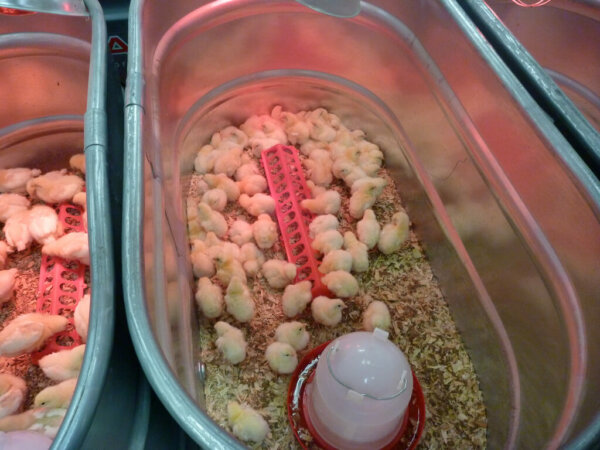
There are some small hatcheries that don’t advertise online and operate by word of mouth. Sometimes it can be hard to even track down a phone number unless you know a farmer or other local who buys from them. Often they don’t ship, and instead, you pick the chicks up at the farm.
Usually, these tiny hatcheries don’t advertise at all, and they don’t need to – they sell out regularly, so you have to establish a relationship with the farmer and then order several months ahead of time, especially in the busy spring months.
Even large hatcheries routinely sell out, and many hatcheries use a three-week reservation schedule. You have to reserve your chicks before the fertilized eggs are incubated, which reduces excess birds born. Plan at least a month ahead when buying chicks from a hatchery.
Choosing The Right Hatchery Is Important!
Hopefully, all of this information gives you a place to start when ordering chicks from a hatchery. The bottom line is that no busy, commercial hatchery is going to care for chicks as well as you can, so if you are really concerned about animal welfare, the best option is probably to hatch them yourself.
https://www.instagram.com/p/0JNEkLoIo0/?tagged=buyingchicks
Not only does it give you full confidence about the welfare of your birds from the very beginning, but it is a great educational project to do with kids. Most hatcheries that ship chicks also sell fertilized eggs.
With a little investigation, you can make well-informed choices about where to buy chicks. By understanding why hatcheries operate the way they do, you will have a better metric for judging mistreatment of animals and buying chicks from a hatchery you are proud to do business with.

















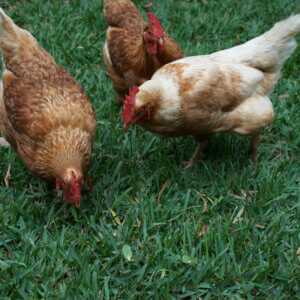









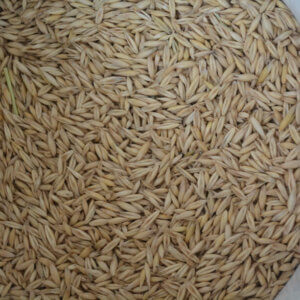



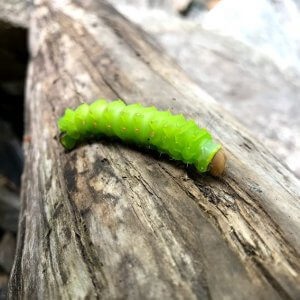



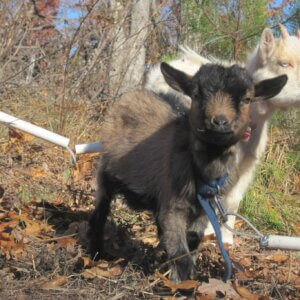




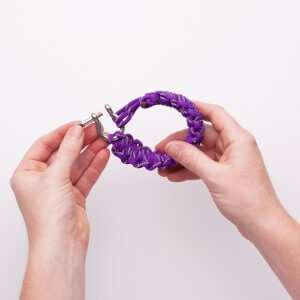
Leave a Reply